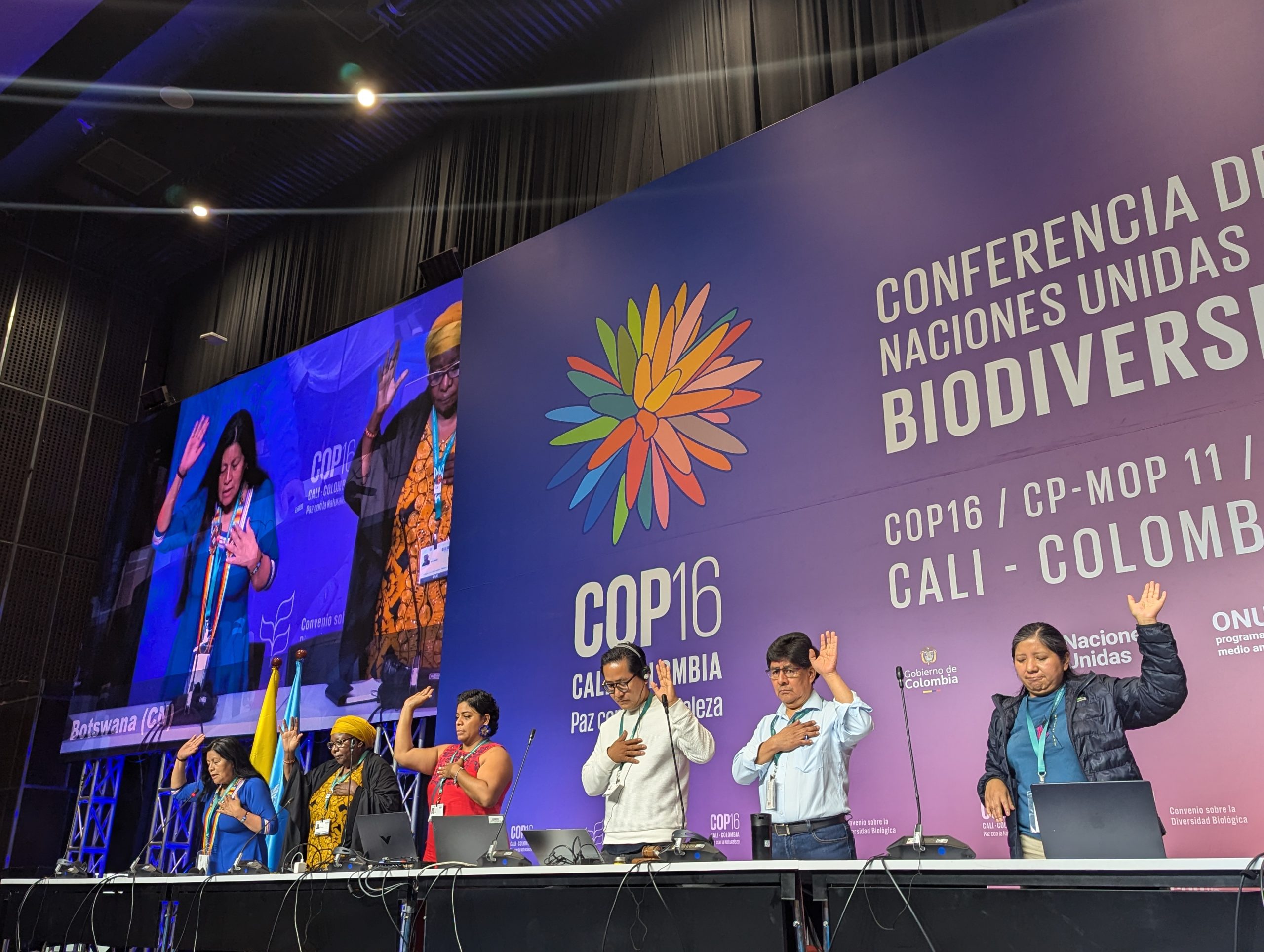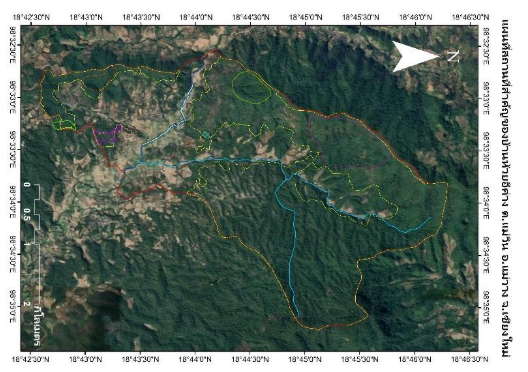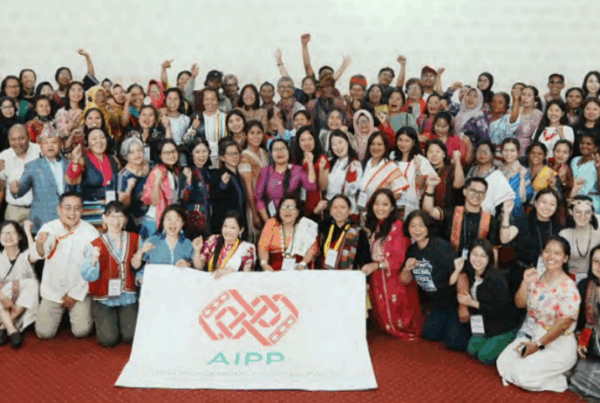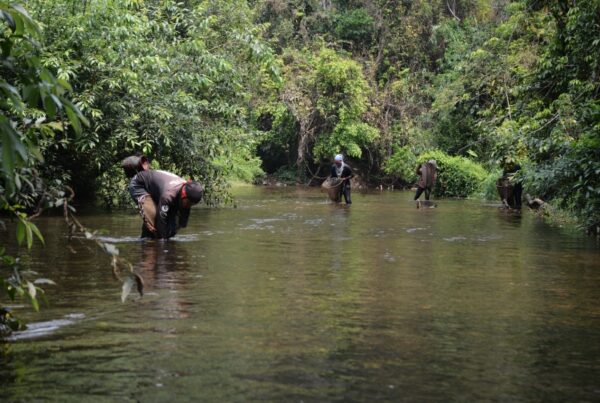The Conference of the Parties related to biodiversity conservation and sustainable use had many positive outcomes, but ultimately was suspended without all decisions being finalised.
In October 2024, governments, NGOs, Indigenous Peoples, local community representatives and other key actors came together in Cali, Colombia to advance progress on the implementation of the new Global Biodiversity Framework, which has the ambitious goal of ‘living in harmony with nature’ by 2050.
Although the meeting didn’t officially end – the final plenary was cut short in the early hours of the morning as too many government representatives had to leave to catch flights home – this was a key meeting for the advancement of Indigenous Peoples’ and local community rights and roles in biodiversity conservation and sustainable use.
Permanent Subsidiary Body on Article 8(j) approved
This subsidiary body will address the participation of Indigenous Peoples and local communities, and the use of traditional knowledge, in the Convention on Biological Diversity
In a ground-breaking move, the Parties to the Convention on Biological Diversity (CBD) agreed to the creation of a permanent Subsidiary Body on Article 8j and other provisions related to Indigenous Peoples and local communities (SB8j). This will address issues related to traditional knowledge and to advance the full and effective participation of Indigenous Peoples and local communities in the work of the Convention. SB8j replaces the Working Group on Article 8j, which although created as a temporary body, existed for over 20 years.
A permanent subsidiary body dedicated to addressing these issues is a landmark development and the result of decades of intense work by the International Indigenous Forum on Biodiversity (IIFB) and supporting networks.
This sets a powerful example for other mechanisms where the rights, knowledge and contributions of Indigenous Peoples and local communities are gaining recognition, including the Climate Change Convention.
The New Programme of Work for the Subsidiary Body on Article 8(j) was also approved at COP16 and sets out the key areas of work that SB8j will focus on between now and 2030. Some tasks are already expected to be carried out by COP17, which will be hosted in Armenia in 2026.
Latin America and the Caribbean have large populations of afro-descendant communities and peoples, who often lead traditional lifestyles that conserve and sustainably use biodiversity. This was a key topic during discussions, supported by the Colombian government and with strong advocacy from afro-descendant peoples in Colombia and further afield, COP16 adopted a decision that recognises their knowledge, contributions and rights and encourages governments to facilitate their participation in the implementation of the Convention.
Land use change and land tenure indicator
Significant progress was made towards the inclusion in the Monitoring Framework of a headline indicator on land use change and land tenure in the traditional territories of Indigenous Peoples and local communities (see info in Traditional Knowledge indicators).
Its inclusion as a headline indicator in the final decision, when that is adopted, will mean that it is mandatory for Parties to report on. The land use and land tenure indicator will monitor the situation of indigenous and traditional communities’ lands and waters, and changes in their use. This would provide key information to the Convention and could result in the greater recognition of indigenous and traditional territories. Crucially, this is expected to be done in partnership with Indigenous Peoples and local communities.
The draft decision text also includes recognition of community-based monitoring and information systems (CBMIS).
However, the Parties did not approve the updated monitoring framework before COP16 was suspended, so these decisions are not final until the framework is formally adopted.
Fund derived from the use of Digital Sequence Information to be shared equitably among countries and with Indigenous Peoples and local communities
Parties agreed to create a ‘Cali Fund,’ which will support the distribution of profits from Digital Sequence Information (DSI), with at least half of the fund expected to support the self-identified needs of Indigenous Peoples and local communities.
This is intended to ensure that when genetic data and information is taken, stored and used from Indigenous Peoples’ or local community territories (for example, digital data and information related to a plant that becomes an ingredient in a new medicine), the benefits are shared with the peoples whose land it was taken from.
However, many details regarding the operations of the fund are yet to be determined and has been set up to collect voluntary contributions from businesses profiting from DSI. This means that the scale and distribution of funding through this remains uncertain and may be limited due to its voluntary nature.
Next steps to officially close COP16
Due to the lack of quorum after an all-night session in the plenary, at 8.27am on Saturday 2nd November (the COP was supposed to end on Friday 1st), COP16 was suspended. This means that some discussions were not concluded and will likely need to be re-visited in an extra-ordinary session of the COP, at a date to be determined.
It was clear in the negotiations, even from before the COP, that fundamental differences existed between certain state parties, particularly in relation to the creation of a financial mechanism under the Convention. The failure to reach a conclusion on this topic, and others, was not entirely a surprise given the glacial movement on that central controversial subject.
Without agreement on this, other critically important decisions (otherwise finalised and ready to be adopted) were held back, including the Monitoring Framework.
In addition to these two agenda items, the budget of the CBD Secretariat was also held back and not formally approved.
A communication from the CBD Secretariat is expected to be released to provide more information on how they propose to move forwards towards finalising COP16.
Type: Article
Region: Global
Country: Global
Theme: International Processes
Partner: International Indigenous Forum on Biodiversity (IIFB)
Tags: COP16



